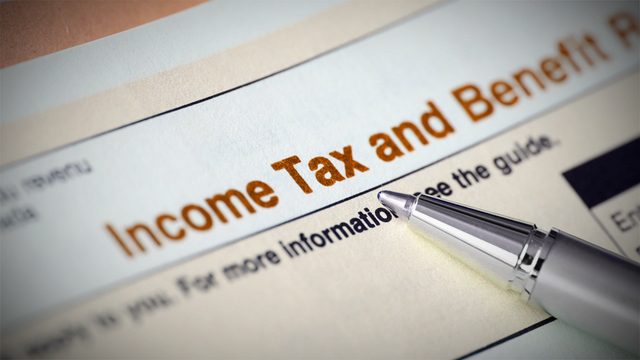SUMMARY
This is AI generated summarization, which may have errors. For context, always refer to the full article.

As a general rule, what is not excluded is included. Nobody is exempted unless explicitly provided in the law.
This is the unpopular opinion supporting the Bureau of Internal Revenue’s (BIR) issuance of Revenue Memorandum Order (RMO) 23-2014, which sets the guidelines for taxing government employee benefits.
Hundreds of thousands of government workers represented by their associations and confederations are trying to stop the implementation of the order by going to the Supreme Court.
But let me reiterate what BIR Commissioner Kim Jacinto-Henares said: There is no new tax being imposed on the allowances and benefits of government employees. The bureau is just doing what it was supposed to have done long ago.
Under Section 32 of the National Internal Revenue Code, compensation for services in whatever form paid, including but not limited to fees, salaries, wages, honoraria, commission and similar items, are subject to income tax. This applies to all employees – whether from private corporations or the government and its instrumentalities.
Thus, RMO 23-2014 provides for a consolidated rule regarding the responsibilities of all government offices, including government-owned and -controlled corporations, and provincial, city and municipal governments, as withholding agents. This is a reiteration of Revenue Memorandum Circular 23-2013 issued more than a year ago to remind the government to withhold taxes on certain income payments made to its officials and employees.
The only benefits exempted from taxation are the “de minimis” ones, and 13th month pay and bonuses and other benefits not exceeding the threshold amount of P30,000 annually.
The following benefits received by government officials and employees are also not subject to income tax and withholding tax on compensation:
1. Fringe benefits which are subject to fringe benefits tax under Section 33 of the NIRC, as amended;
2. Representation and Transportation Allowance or RATA granted to public officers and employees under the General Appropriations Act;
3. Personnel Economic Relief Allowance or PERA granted to government personnel;
4. The monetized value of leave credits paid to government officials and employees;
5. Mandatory/compulsory GSIS, Medicare and Pag-IBIG contributions;
6. Union of individual employees;
7. Compensation income of employees in the public sector with compensation income of not more than the Statutory Minimum Wage in the non-agricultural sector applicable to the place where he/she is assigned;
8. Holiday pay, overtime pay, night shift differential pay, and hazard pay received by Minimum Wage Earners;
9. Benefits received from GSIS Act of 1937, as amended, and the retirement gratuity/benefits received by government officials and employees under pertinent retirement laws.
Clearly, those income and benefits received by government employees not included in the enumeration above are subject to income tax.
However, I will not be surprised if the Supreme Court will have a different view on this issue as their allowances and benefits are also covered by the RMO.
Got a question about taxes? #AskTheTaxWhiz! Tweet @rapplerdotcom or email us at business@rappler.com. – Rappler.com
Mon Abrea is a former BIR examiner and an advocate of genuine tax reform. He serves as chief strategy officer of the country’s first social enterprise, the Abrea Consulting Group, which offers strategic finance and tax advisory services to businesses and professionals. Mon’s tax handbook, “Got a Question About Taxes? Ask the Tax Whiz!” is now available in all bookstores nationwide. Follow Mon on Twitter: @askthetaxwhiz or visit his group’s Facebook page. You may also email him at consult@acg.ph.
Income tax form and pen image via Shutterstock
Add a comment
How does this make you feel?
There are no comments yet. Add your comment to start the conversation.